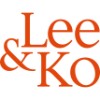Doing Business In... 2025
South Korea
Trends and Developments
Employment Law Trends in Korea: The Yellow Envelope Law and Its Implications for Businesses
As South Korea continues to solidify its position as a global economic hub, its employment law landscape is undergoing a significant transformation. One of the most significant developments is the proposed amendments to Articles 2 and 3 of the Trade Union and Labour Relations Adjustment Act (TULRAA), commonly referred to as the “Yellow Envelope Law.” These amendments, which have gained renewed attention given the current administration’s prioritisation of labour policy, promise to reshape labour relations in Korea. For businesses operating in or entering the Korean market, understanding these changes is crucial for navigating the evolving legal and operational landscape. This article examines the key features of the Yellow Envelope Law and its potential implications for employers.
Expansion of “employee” and “employer” definitions
The Yellow Envelope Law proposes significant revisions to the definitions of “employee” and “employer” under the TULRAA, potentially broadening the scope of labour protections and obligations.
Redefining “employee”
The current TULRAA defines an “employee” as someone who earns wages or equivalent income, regardless of occupation. The proposed amendment redefines an “employee” as “a person who provides labour for remuneration in a business or workplace,” introducing a rebuttable presumption that individuals providing labour for another’s business are employees. To rebut this presumption, employers must prove that:
- the individual is not subject to their direction and supervision;
- the work falls outside the employer’s ordinary business scope; and
- the individual operates independently under their own name and account in the same field.
If enacted, this change could extend labour protections, including the right to engage in industrial action and/or collective bargaining, to previously excluded groups, such as independent contractors and self-employed individuals. Businesses should proactively document work arrangements to demonstrate the absence of direction and supervision, particularly for non-traditional workers, to mitigate the risk of reclassification disputes.
Broadening “employer” status
The amendment also expands the definition of “employer” to include individuals who, despite not being party to an employment contract, substantially control or determine employees’ working conditions. This change could implicate principal contractors in multi-tiered subcontracting arrangements, holding them liable as employers for collective bargaining or imposing restrictions on their use of replacement labour during industrial actions.
For companies, particularly those in industries that rely on subcontractors, this necessitates a strategic review of their business processes. Minimising direct control over subcontractor employees and clearly delineating operational responsibilities can help reduce the risk of being deemed a de facto employer.
Broader scope of labour disputes
The Yellow Envelope Law seeks to expand the definition of “labour dispute” under the TULRAA. Currently, a labour dispute arises from disagreements over the determination of working conditions (eg, wages, hours or dismissals) where no further agreement can be reached. The proposed amendment simplifies this to disagreements “regarding working conditions”, encompassing both interest disputes (involving the formation of new conditions) and rights disputes (involving the enforcement of existing conditions).
This broader scope means disputes over unpaid wages, collective agreement enforcement or unfair labour practices could now qualify as labour disputes. Companies must prepare for an increase in disputes not only during collective bargaining but also in the context of existing agreements. Implementing robust compliance programmes and risk mitigation strategies will be crucial to managing this expanded exposure.
Limitations on trade union liability
The proposed amendments to Article 3 of the TULRAA introduce significant changes to the liability framework for trade unions and their members. Currently, employers cannot claim damages for losses from lawful industrial actions or collective bargaining. However, unlawful actions may result in liability, as affirmed by Supreme Court decisions.
The Yellow Envelope Law proposes:
- extending liability exemptions to all union activities, not just collective bargaining and industrial actions;
- exempting unions and workers from liability for unavoidable damages while resisting unlawful employer acts;
- requiring individualised fault and contribution assessments for liable parties; and
- allowing employers to waive damage claims against unions or workers.
These changes could embolden unions to pursue more assertive action, anticipating greater protection from liability. Employers will face a higher burden to prove individual fault in damage claims, moving away from the joint tortfeasor framework. To navigate this, businesses should meticulously document union activities and individual involvement during disputes, ensuring compliance with lawful industrial action requirements to avoid triggering exemptions.
Practical implications for businesses
The Yellow Envelope Law, if enacted, will fundamentally alter Korea’s labour relations landscape. Companies operating in Korea should consider the following steps.
- Review worker classifications: Assess relationships with contractors and self-employed individuals to ensure compliance with the expanded definition of “employee”. Maintain clear documentation to rebut presumptions of employee status.
- Restructure subcontracting arrangements: Principal contractors should minimise direct oversight of subcontractor employees and establish functional separations to avoid employer liability.
- Strengthen compliance programmes: Develop robust policies to address the broader scope of labour disputes, particularly those related to existing agreements and unfair labour practices.
- Document industrial actions: Maintain detailed records of union activities and individual participation to support potential damage claims while ensuring responses to industrial actions align with legal requirements.
Conclusion
The proposed amendments to the TULRAA, dubbed the Yellow Envelope Law, signal a transformative shift in Korea’s employment law framework. By expanding the definitions of “employee” and “employer,” broadening the scope of labour disputes, and limiting union liability, these changes will significantly impact workplace dynamics. For businesses, proactive preparation is essential to mitigate risks and ensure compliance in this evolving legal landscape. As discussions in the National Assembly intensify, staying informed and agile will be crucial to navigating South Korea’s dynamic labour market successfully.
Lee & Ko
Hanjin Building
63 Namdaemun-ro
Jung-gu
Seoul 04532
South Korea
+82 2 772 5944
+82 2 772 4001
William.kim@leeko.com www.leeko.com


